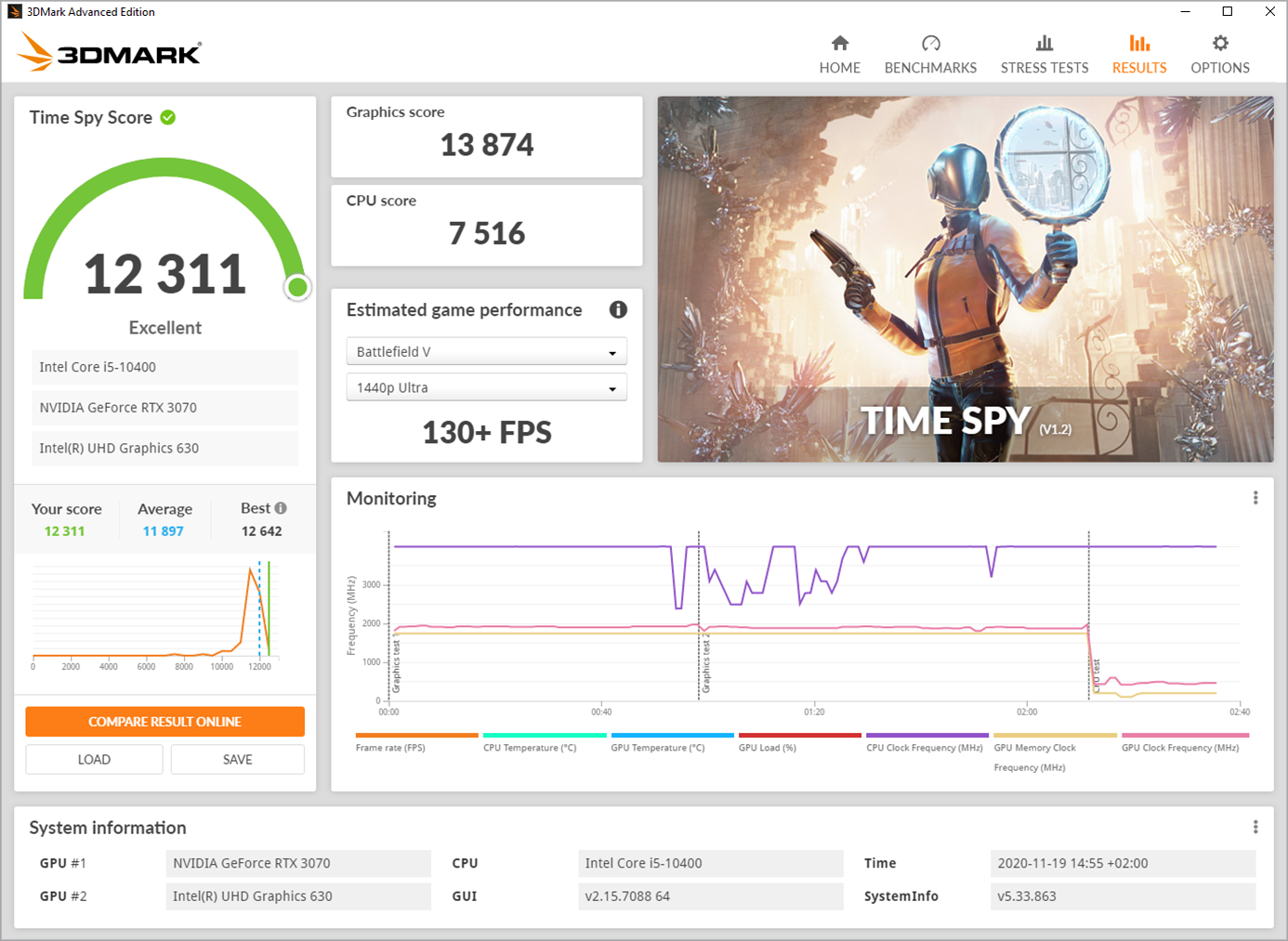
Well, that’s about it! I hope this article was helpful. Why? Because probably if you were to drop that temperature below 76 degrees Celsius, you’ll see less throttling (that means that you’ll have higher GPU core/memory frequencies most of the time) and thus a better performing GPU.
#BENCHMARK TESTS FOR PC PC#
So if during a benchmark, your GPU temperatures rises to 76 degrees Celsius, you could look for dust around your PC or even undervolting. On modern GPU’s, this happens sooner than you’d like. Your GPU or CPU throttle when temperature increases. Problems like overheating, PSU stability, RAM issues and many more. There is also an interactive experience with fly-by and walk-through modes giving a chance to explore all corners of.

So testing your system using a benchmark once in a while, might prove useful.Īnother reason, would be to uncover various problems with your PC. Since 2007, UNIGINE benchmarks provide completely unbiased results and generate true in-game rendering workloads across multiple platforms (Windows, Linux and macOS), featuring support for both DirectX and OpenGL.
#BENCHMARK TESTS FOR PC DRIVERS#
As you probably know, sometimes even drivers make a difference in performance. online multicore CPU benchmarking service (uses only JavaScript) to benchmark computer (PC or. One reason, would be to be sure that everything is running as it should. benchmark / stress test with online results and statistics. Why should we benchmark and stress test our PC’s? If during a benchmark the usage of your CPU (for example) might vary, during a CPU stress test it usually stays to 100%. Usually, stress tests take a bigger toll on your hardware in the sense that they use all the power available. A truly stable PC will have no problem handling a stress test for 8 hours continuously. On the other hand, stress tests are meant to run hours or even days. So what’s the difference between stress tests and benchmarks?īasically benchmarks run for a while, and then give you a representative score of how your hardware performed. Popular stress testing tools: OCCT, Prime95, Intel Burn Test, MemTest, FurMark, and others. For graphics cards, this usually means a graphics-heavy scene from a video game, or one that could be in a video game. And if it isn’t, where the problem might be. A benchmark is a test or series of tests designed to push the performance of your system or component to see what its capable of. They are meant to give you a good idea of whether or not your PC is stable 24/7. Stress tests are made to make your hardware run as close to 100% of their capacity as possible. But when trying to determine performance, usually benchmarks do a better job due to less variation in the things your hardware needs to process.ģD Mark, PC Mark, Unigine Heaven Benchmark, Unigine Superposition Benchmark, Cinebench R20 or Cinebench R15.

#BENCHMARK TESTS FOR PC SOFTWARE#
It is indicated to play your usual games and run the apps you usually do. PassMark Software has delved into the millions of benchmark results that PerformanceTest users have posted to its web site and produced a comprehensive. Do note that it is important to thoroughly test your hardware.


 0 kommentar(er)
0 kommentar(er)
